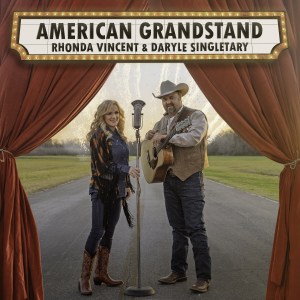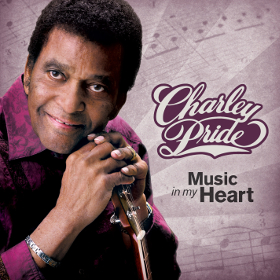Rating: 7/10
Yeah, I don’t usually talk about cover albums, especially when the album in question features covers so obvious as some of the ones here, like “Golden Ring” and “Louisiana Woman Mississippi Man.” But July is slow, and it gives me time to listen to this, and this album proves there are exceptions to everything.
Rhonda Vincent and Daryle singletary are a notable exception in this case, somehow managing to take timeless songs and make them sound fresh. It speaks to the quality of their individual voices, as well as to the way they blend together flawlessly and manage to convey emotion so well that they can breathe new life into songs which are almost tired by now. A couple of the songs on this record still sound a little superfluous or obligatory, even if the actual singing is good, but “After the Fire is Gone” is one of the best covers here, closely followed by “Above and Beyond” and “One.” These three covers open the album with its strongest moment and promptly erase any misgivings you might have had about another covers project. I’ll go right ahead and establish my classic country ignorance yet again by saying “After the Fire is Gone” is one I’d never heard before, and I have to say, after getting acquainted, I think I prefer this version.
And let’s not overlook the fact that these are actually duets, not new versions with backing vocals or versions where one person sings the lead, and the other has a token line or two. These are real, old-fashioned duets; it actually takes both of them to make these songs work, and each brings a valuable contribution to every track. They enhance each other vocally, as good duet partners should. They feed off one another like iron sharpens iron. Their harmonies are stellar. Appreciate that actual duets, not the kind with a few lines by a secondary performer, are incredibly hard to pull off. The male/female duet brings in a whole set of other problems, as you have to find a key that is flattering to both voices. Appreciate all that for a second, and then realize we’ve got a whole album of them here. I appreciate Jason Eady and Courtney Patton’s Something Together album–in fact, you’ll find that got a higher rating here than this, and it’s been criminally underrated and unnoticed–but my biggest criticism for it was that some songs felt less like duets and more like acoustic versions with backing vocals. That’s probably just due to the fact that they couldn’t agree on a flattering key for fourteen songs without relegating one of them strictly to harmony sometimes. But that’s never the case here, not even on one song, and musically, that’s pretty amazing.
The covers are cool, but I don’t think they’ll all hold up. Some of them, like the aforementioned “Louisiana Woman Mississippi Man,” just feel a little too obvious, as though Vincent and Singletary felt like there was some sort of unwritten rule that they couldn’t make a duets album without including certain songs. That’s mostly the reason for the 7; I just feel like even though this is cool now, a good portion of it will wear off once you do get past their incredible singing. I mean, it may take awhile to actually get past said singing, but when this happens, it’s the lesser-known covers, and more than these, the originals, that will last. Appreciate this for a second too–take all of that I said about arranging a duet, and then imagine the difficulty involved in writing them. But we do have several originals here, like the title track and “As We Kiss Our World Goodbye.” These serve to add a sense of legitimacy to the album and will make it outlast the novelty factor.
This is not some earth-shattering release that will change your world, but it is a very country album full of great songs and sung by an outstanding pair of voices. But what makes it special is the chemistry in those voices, and the fact that this record keeps up that long-standing and proud tradition of country duets. And duet partners–George and Tammy, Loretta and Conway, and in more recent days, Garth and Trisha, Vince and Reba. More recent than that? Think of Blake and Miranda, or even Tim and Faith for pop country. The point is, that tradition has survived throughout country’s history, and no, it’s not the same thing as Maren Morris selling herself out to blend into Thomas Rhett’s “Craving You” for three lines to score a #1 hit. This is a great showcase of real country duets, just another one of many traditions being forsaken by the mainstream. So it’s a great thing to get a record like this in 2017, to see that the country duet is still very much alive and well, and here’s to hoping that it’s not the last from these two excellent duet partners.



